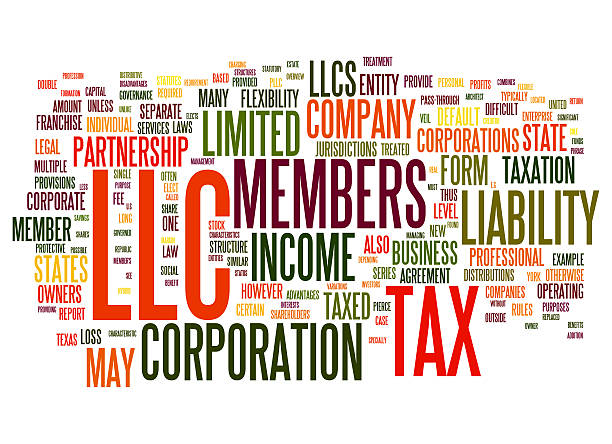Simplifying
Business Incorporation
Opt for Incorporation by CPA for an effortless and economical incorporation experience designed by CPA experts.
Why Choose Incorporation by CPA?
At Incorporation by CPA, we specialize in providing a seamless and cost-effective incorporation experience, guided by our team of CPA experts. Our services are designed to make the incorporation process smooth and efficient, offering the following:
Expert Guidance
Our CPAs ensure all incorporation documents are accurately prepared and filed.
Cost-Effective Solutions
We offer affordable packages that include all necessary steps for successful incorporation.
Speed and Efficiency
Our streamlined process ensures your business is incorporated quickly, so you can start operating without delay.
Personalized Support
From selecting the best business structure to understanding tax implications, we provide comprehensive support tailored to your needs.


About
Incorporation by CPA
Incorporation is the legal process of forming a corporate entity or company, resulting in a separate legal entity known as a corporation. This process differentiates the firm’s assets and income from its owners and investors, offering numerous benefits, including limited liability, easier capital raising, and distinct tax advantages.
How Incorporation Works ?
Incorporation involves drafting the articles of incorporation, which includes the business name, location, purpose, shareholder information, and stock details. A registered agent is selected to handle official paperwork and mail. The articles are then filed with the state authority, usually with a filing fee. Corporate bylaws are created to outline the company’s structure, compensation, voting rights, and board operations. Initial board meetings are held to formally adopt the articles and bylaws, issue shares, elect officers, and make operational decisions. Additional requirements include obtaining an employer identification number, setting up a bank account, filing taxes, and potentially announcing the creation of the corporation.
Incorporate In 9 Simple Steps
Choose a Name for Your Corporation
Select a unique business name that complies with state naming requirements.
Appoint Initial Directors
Nominate individuals to serve on the initial board of directors.
File Articles of Incorporation
Submit the articles of incorporation to the state’s business filing agency.
Draft Corporate Bylaws
Create internal rules outlining how the corporation will operate.
Hold the First Board of Directors’ Meeting
Convene a meeting to approve bylaws, appoint officers, and issue stock.
Issue Stock
Allocate ownership shares to shareholders and record the details.
Draft a Shareholders’ Agreement
Optionally, establish terms for shareholder rights and responsibilities.
Get an Employer Identification Number (EIN)
Obtain a unique identifier from the IRS for tax purposes and business operations.
Get Business Permits, Licenses, and DBAs
Secure necessary licenses, permits, and register a DBA if operating under a different name.
Benefits of Incorporation
- Limited Liability Protection: Shareholders are shielded from personal liability for the company’s debts and legal obligations, protecting their personal assets.
- Tax Advantages: Corporations can deduct various business expenses from taxable income and enjoy potentially lower tax rates in some jurisdictions. They can also defer taxes by reinvesting earnings.
- Access to Capital: By issuing shares of stock, corporations can attract investors and raise capital more effectively, facilitating business growth and expansion.
Who Regulates Corporations
The Securities and Exchange Commission (SEC)
The Federal Trade Commission (FTC)
The Department of Justice (DOJ)
Self-Regulatory Organizations (SROs)
How We Provide Incorporation Service

At Incorporation by CPA, we are dedicated to simplifying the process of starting your corporation. From initial consultation to ongoing compliance and support, our comprehensive services ensure a smooth and legally sound incorporation journey. Here’s how we provide this service:
- We start with a detailed consultation to understand your business needs and goals.
- Our team prepares all necessary documents, including the articles of incorporation and bylaws.
- We handle the submission of your incorporation documents to the relevant state authorities.
- We ensure your business meets all legal requirements and stays compliant with ongoing filing and reporting needs.
- Our CPAs are available to provide ongoing support and advice as your business grows.
Advantages of Incorporation
- Protects owners from personal liability as the corporation is responsible for its own debts.
- Corporations can issue and trade shares, facilitating capital raising.
- Owners can sell partial stakes in the company rather than full ownership.
- Corporations may receive favorable tax treatment and lenient restrictions on loss carryforwards.
Disadvantages of Incorporation
- Requires adherence to bylaws, filing, and reporting requirements.
- Both the corporation and shareholders are taxed on the same funds.
- Involves fees and legal costs, making it more expensive than other business structures.
- Bound by bylaws and board decisions, which may limit rapid strategic changes.
Types of Corporations
There are different types of corporations to accommodate various business needs, goals, and legal considerations:
C-Corporation (C-Corp)
The default type of corporation, subject to corporate income tax and double taxation on dividends.
S-Corporation (S-Corp)
Bypasses double taxation by allowing corporate profits and losses to pass through to shareholders, who report them on their personal income tax returns.
Nonprofit Corporation
Established for charitable, educational, religious, or other socially beneficial purposes, usually exempt from income taxes.
Professional Corporation (PC)
Used by licensed professionals such as doctors, lawyers, accountants, and architects, providing personal liability protection for their professional actions.
Public vs. Private Corporations
Public corporations raise capital through public offerings, while private corporations sell shares to specific investors and face fewer regulations.
Limited Liability Company (LLC)
Combines elements of a corporation, providing limited liability protection and flexibility in management and taxation.


